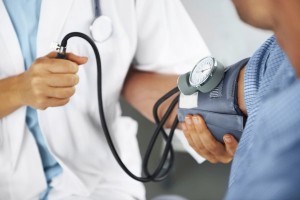 Do doctor appointments make you feel nervous? I have a family member who gets anxious at health care visits. Her blood pressure is always significantly higher at the start of an appointment compared with at home, or even at the end of the appointment.
Do doctor appointments make you feel nervous? I have a family member who gets anxious at health care visits. Her blood pressure is always significantly higher at the start of an appointment compared with at home, or even at the end of the appointment.
Now there’s some new evidence that documents what she experiences. Researchers at the University of Exeter Medical School in England conducted a meta-analysis to determine whether doctors make patients nervous, therefore raising their blood pressure. This phenomenon is often called the “white coat syndrome.”
For their analysis, researchers reviewed data from 15 studies involving more than 1,000 patients in 10 countries. They found, on average, that systolic readings (the top number) were 7.0 millimeters of mercury higher when measured by a doctor compared to when measured by a nurse. And the diastolic readings (the bottom number) were 3.8 higher when taken by doctors compared to nurses.
The take-home message here is simple. Blood pressure readings taken by doctors in health care settings may not be accurate because doctors make some patients feel anxious. One way to help alleviate this “white coat effect,” is to have nurses take a patient’s blood pressure instead.



Speak Your Mind